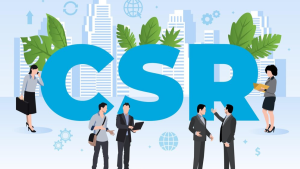
To say that there is an extreme poverty in Nigeria would be stating the very obvious. It stares us in the face at every angle.
A recent report by the Nigerian Bureau of Statistics, in its Multidimensional Poverty Index (MPI) survey, revealed that 63 per cent of persons living within Nigeria, that is an average of 133 million persons, are multidimensionally poor.
Being multidimentionally poor implies suffering multiple disadvantages at the same time, in areas such as health, nutrition, access to water and electricity, quality of work, income, shelter, education and others.
The situation in Nigeria is so bad that the report, which is a collaborative effort by the NBS and the National Social Safety-Nets Coordinating Office (NASSCO), the United Nations Development Programme (UNDP), the United Nations Children’s Fund (UNICEF), and the Oxford Poverty and Human Development Initiative (OPHI), noted that 51 per cent of this number are children and that they lack the intellectual stimulation that is pivotal to early childhood development. This is the generation that would take over from the current adult generation, the future generation so to speak. That makes it worrisome.
Shubham Chaudhuri, World Bank Country Director for Nigeria, recently disclosed that much is needed to be done to help lift millions of Nigerians out of poverty, including boosting health and education, bolstering productive jobs and expanding social protection.
Poverty is a social, political, moral and economic issue that creates problems such as ill-health, inability to acquire the basic necessities of life, deprivation of full exercise of civic and political rights, and so forth.
While it is said that poverty cannot be completely eradicated, strategies can be put in place in alleviating it. One of such strategies is through Corporate Social Responsibility efforts. However, beyond corporates, private individuals with a strong moral obligation can also altruistically, undertake to impact the society they live in a positive and productive way.
Though there are some public spirited individuals who have committed to undertake such initiatives, it is more or less like a drop in the ocean as against the problems at hand. There is a common saying that a multidimensionally poor person is a disaster waiting to happen, worse still, when you have them in their numbers.
So philanthropy, which is an arm of CSR is one of the strategies that can be adopted in changing the world around us. Nothing says private individuals should wait until businesses undertake to carry out the mission. The Nigerian situation is critical to the extent that every comfortable individual should have the passion to lift one or two persons out of poverty. This is quite different from doing charitable acts. Acts of charity such as giving out money or provision of food items can only solve immediate problems and most likely will not provide long term solution to the problems or challenges on ground.
This does not imply that engaging in charitable acts, known as relief philanthropy isn’t good. Not at all! It is also a welcome development, better than doing nothing at all.
However, when you give people fish, they will still be hungry thereafter. But when you show them how to fish, tomorrow they will be self-sufficient and not look up to people for sustenance. You would have fed them for life. Besides, they too on their parts, will lift other people out of poverty and their children will not constitute nuisance to the society.
Charity focuses on eliminating the suffering caused by social problems, while philanthropy focuses on eliminating social problem itself. Philanthropy goes to the root cause of the problem.
Even where a single individual cannot fund a particular course, She/he can seek collaboration with like minds, an individual or people who share the same passion as him, pool their resources together and sponsor a course they believe in.
Well-meaning organizations can also encourage their staff members to come together in vulenteer form to undertake a crowdfunding initiative to touch the lives of low income individuals or community like we see in the case of First Bank with SPARK Initiative.
So in line, businesses can undertake to do the same as First Bank’s SPARK (Start Performing Acts of Random Kindness) initiative. Though the company instigated initiative, it is not directly involved. It is the staff who are directly and voluntarily involved. SPARK is aimed at inspiring and initiating kindness and empathy, as well as consideration for others, especially their immediate environment.
Private individuals can as well donate their time to sharing specialized knowledge in a particular field that will benefit the low income earners or poor of the society. One of the causes of poverty is lack of financial discipline in people’s private lives and businesses. Philanthropy could be in the form of devoting your time to share knowledge on financial literacy and counseling to the ignorants. Once people are aware, they avoid impending socioeconomic pitfalls, which has the tendency to affect generations after them.
Upskilling is also an initiative which private philanthropists can engage in. Before now, upskilling only takes place in organisations where businesses train their staff to meet up with new trends in their operations. That particular kind of upskilling, though not wrong, is targeted at meeting up with the company’s demands and improving their revenues. However, there are several millennials who earnestly desire to upskill themselves in their various career calling but do not have the resources and means to do so.
To come to the rescue of such fellows, individuals philanthropists can undertake to announce their willingness to assist in funding such a venture or even bring together professionals with fresh ideas in particular fields of knowledge to offer various forms of trainings to such persons. Rather than benefiting an organization this time around, individuals whose lives would have been bettered with the upskilling initiatives benefits and the larger society gains.
Private individuals can offer to underwrite scholarships for talented persons, sponsoring cultural and artistic activities, or supporting educational and other improving organizations. There are several people who today would never have seen the four walls of the higher institutions, but for the kind gestures of private individuals. Such deeds of kindness will never go unnoticed or unappreciated. We have people at different places who graduated from apprenticeship of some vocational trainings, but roaming about due to absence of capital. If such people can be provided funds with which to start up their business, they will be able to help themselves as well as people around them.
In a publication by BusinessDay newspapers, it was stated that the implementation of the SPARK Initiative in 2022 saw employees under the banner of their various departments make choices regarding the specific nature of intervention they would want to undertake and the specific group of people or institutions within their immediate communities that they would want to extend the milk of human kindness to.
Just like First Bank, several other organisations can inculcate such philanthropic morals in their staff and that will translate to the larger society.








